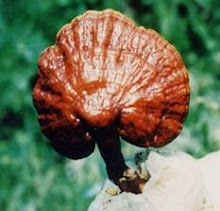
The Ganoderma Lucidum spore (Reishi Mushroom Spore) is a powerful supplement that is believed to have anti-tumor and immuno-potentiating properties (enhancing the functioning of the immune system). Therefore, it is most beneficial for those fighting illnesses such as cancer and the adverse effects of cancer treatment, hepatitis, AIDS complex, herpes zoster, chronic fatigue syndrome, arthritis, chronic bronchitis and allergies. Few side effects have been reported with use of ganoderma (reishi).
If you or a loved one is struggling with a chronic illness and looking for a healthful supplement, try the Ganoderma Lucidum Spore (Reishi Mushroom Spore). This powerful supplement enhances energy levels, is believed to decrease tumor growth, and may improve weakened immune systems. Make a confident and educated choice, order the Ganoderma Lucidum Spore today and bring balance to your life.
Chronic Illnesses:
How Can Ganoderma Complement the Treatment of a Chronic Illness?
Immuno-Compromising Illnesses
Herbalists frequently recommend ganoderma lucidum spore powder for the adjuvant treatment of many different immuno-compromising illnesses. Ganoderma (reishi) is an excellent complementary herbal treatment for those with chronic and acute hepatitis, AIDS-related complex, to provide pain-relief from herpes zoster (shingles), and for those suffering with chronic fatigue syndrome, chronic asthma, bronchitis, or allergies.
Cancer
In China the ganoderma lucidum spore (reishi mushroom spore) is often used as a prophylaxis against and a complementary treatment for cancer. At this time, there are no controlled clinical trials in humans to evaluate the effects of ganoderma (reishi) against cancer. However, anecdotal clinical observation suggests that spore extracts increase the white blood cell count in patients being treated with chemotherapy and radiotherapy, while decreasing symptoms of fatigue and weakness. By enhancing the immune defenses and minimizing the symptoms caused by toxic cancer treatments, cancer patients can improve their quality of life. Although ganoderma (reishi) is not a pharmaceutical agent and has not undergone rigorous human clinical trials, there are numerous animal studies and indirect clinical evidence to support its supplemental use in cancer. In a review of the literature conducted by a scientist at Sloan-Kettering Cancer Center, Chang (1994) discussed the enormous potential of ganoderma (reishi) and recommended that nationwide studies be developed to examine the following benefits:
As a supplement during chemotherapy or radiotherapy to reduce treatment side-effects such as fatigue, loss of appetite, hair loss, and risk of infection.
For the prevention of cancer in individuals at high risk
As a supplement for cancer patients to improve an overall feeling of wellness, decreased pain, and increased health related quality of life.
As a supplement for preventing primary or recurrent cancer.
Back to Top^
Side Effects:
What are the side effects of ganoderma lucidum?
There are very few side effects from taking ganoderma (reishi), and most people report that they have experienced no side effects at all. In general, ganoderma (reishi) is non-toxic, even when used at high therapeutic doses. Allergic reactions are very rare. However, as with many herbal supplements, mild side effects may include dizziness, dryness of the mouth, throat and nasal areas, upset stomach or loose stools. As with any supplements, consumers should communicate their use of ganoderma (reishi) with their primary health care professionals. When used at high therapeutic doses, ganoderma (reishi) has the potential to enhance the effects of the following types of medications, and thus should be discussed with your health care professional to allow proper patient monitoring:
Antihypertensive medications
Hypoglycemic medications
Anticoagulant medications
Uses and Therapeudic Dosage
For general wellness, health maintenance and prevention of illness, take one 250 mg capsule with meal once per day in the first week. Gradually increase to two to three capsules per day.
For treatment of chronic illnesses, take three to five 250 mg capsules each time, three times a day (no more than 15 capsules a day).

No comments:
Post a Comment